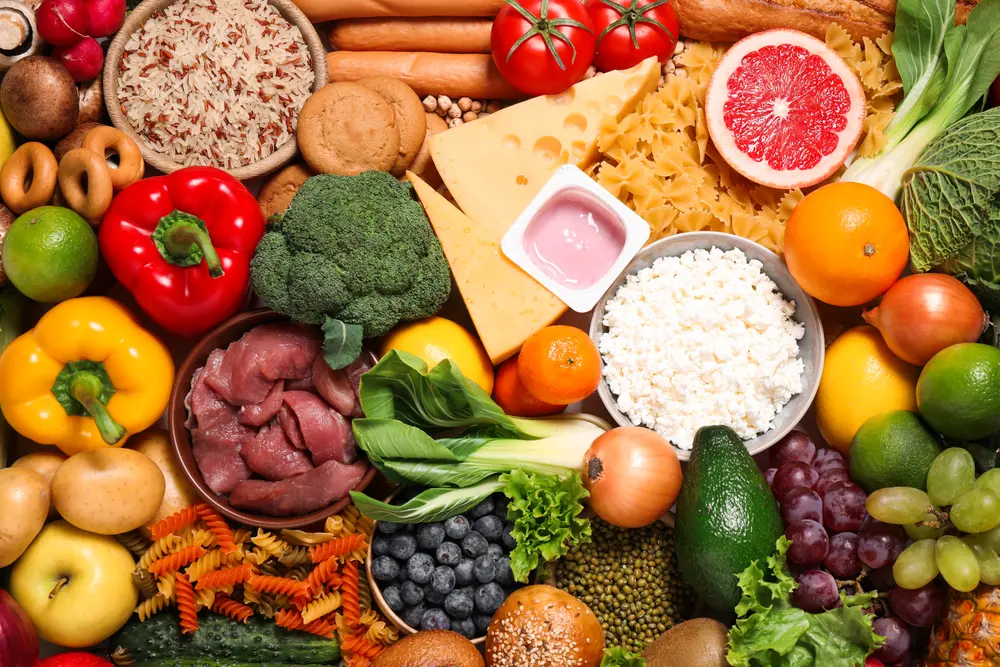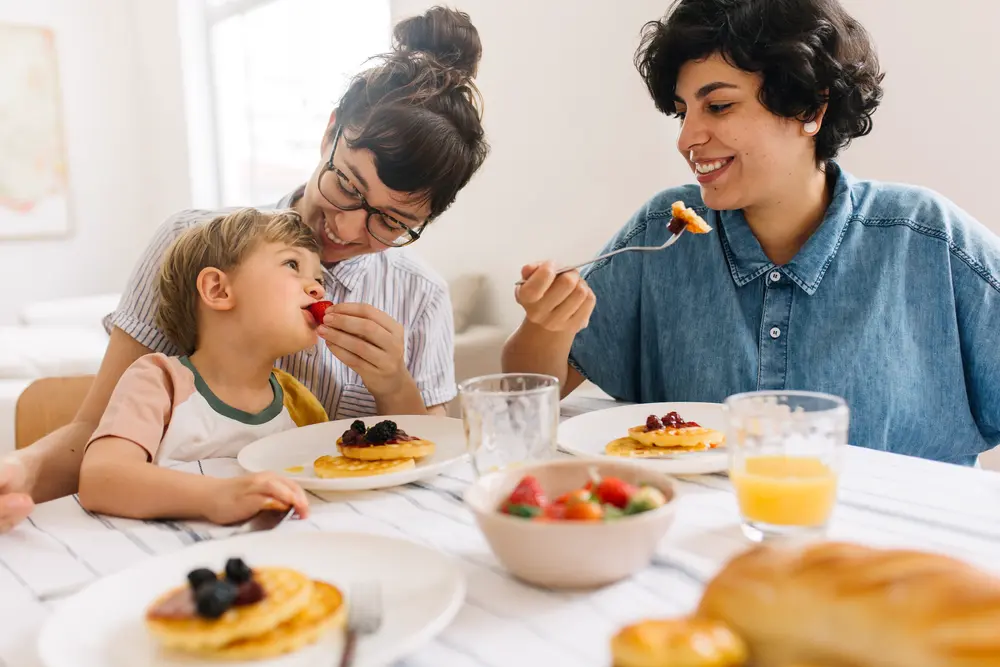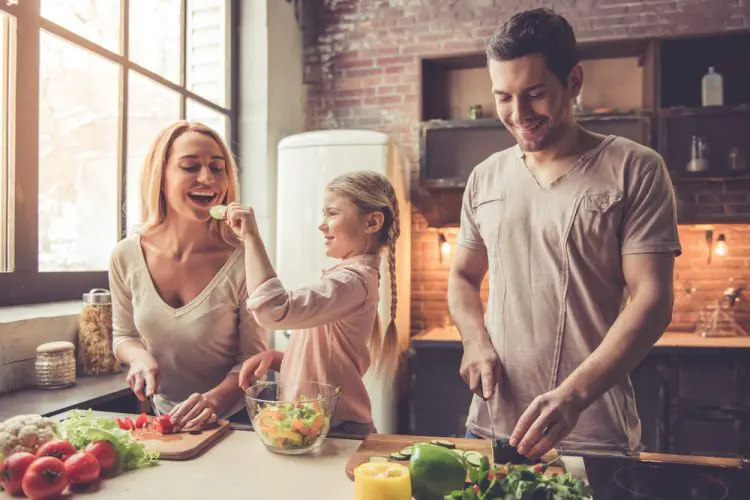How we deal with diets in our home has a big impact on how our children see food and what relationship they have with food.
Diet culture is big in our society and it has been for decades.
One of the biggest impacts this diet culture has had is the phenomenon of “yo-yo dieting”.
Yo-yo dieting is the practice of flipping back and forth between fad diets in order to lose weight and get slimmer. It is also the process of going between being “on a diet” and not on a diet rapidly, as nothing sticks for a long period of time.
The reason this happens is that staying on strict diets, fad diets, and trendy diets is really difficult and is usually not sustainable long-term.
When we as parents regularly engage in yo-yo dieting it can have direct effects on our children and how they eat, and this is something that can stay with them as they grow up and grow into teenagers, young adults and adults.

We have to remember that our children see and hear most things that we do and they definitely see what we are eating. They also definitely hear when we talk negatively about ourselves and our bodies. When we go on a new crash diet to “shift our Christmas weight” we are saying something to our children about body image and diet culture, whether we think we are or not.
This can all have very negative influences, even if they lie dormant for years and emerge later.
What we can do to stop this negative cycle is to instead promote balanced diets that can be maintained consistently in our household.
Try not to engage in fad and trend diets that you never stick to, and instead try and keep a long-term healthy and balanced diet that works for you and your body.
Include all food groups, cut down on processed sugar, limit things that irritate your stomach, keep alcohol to a minimum, have treats but maintain a healthy balance.

This kind of diet is one that you can stick to for a long time and so it isn’t really even a “diet” anymore, it is simply a way of eating and a lifestyle.
If your children are exposed to this healthier and more sustainable attitude towards food growing up, they are much less likely to have shame around food and eating as they grow up. They are more likely to emulate your behaviour and copy your balanced eating, and they are less likely to buy into fad diets or diet products themselves.
We need to provide as healthy of an environment as possible for our children to grow up in and we can’t forget the impacts of our own actions within that, even if we think they can’t always see us.
Food is a big part of our lives and we need to make sure we are doing all that we can so that our children have healthy and happy relationships with food.

So, ditch the yo-yo dieting this year and go for a long-term vision of balanced eating instead.
It will keep the whole family a lot happier for years to come.



